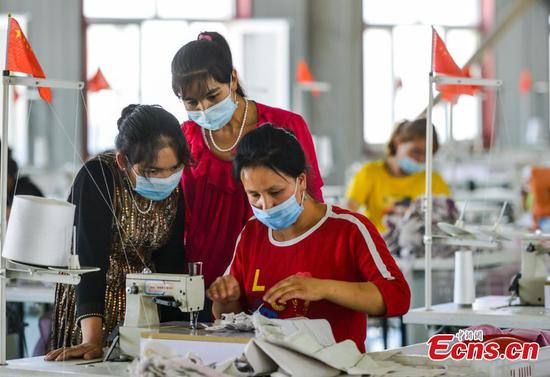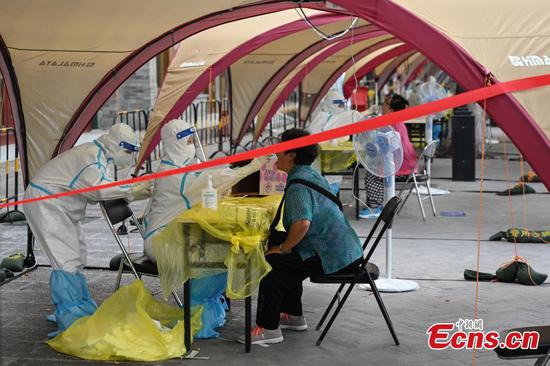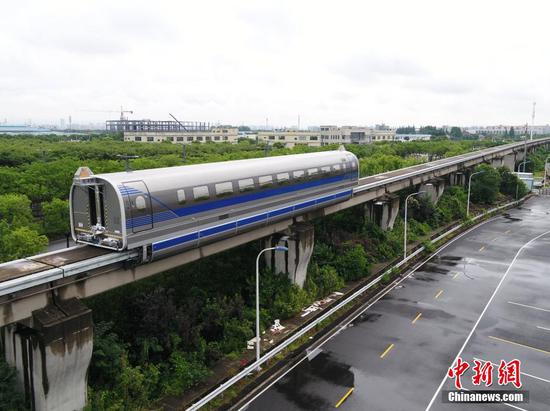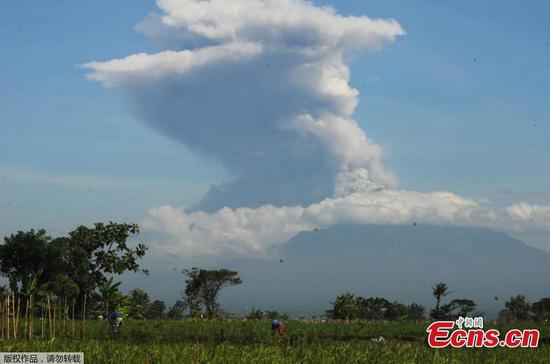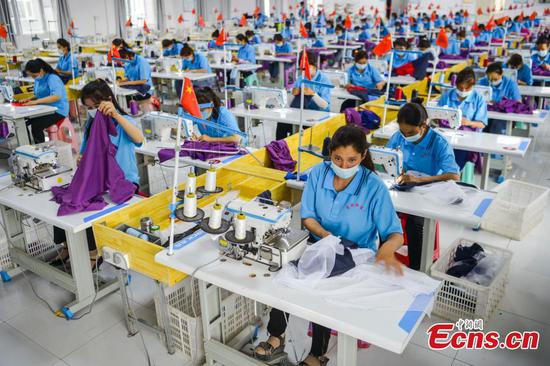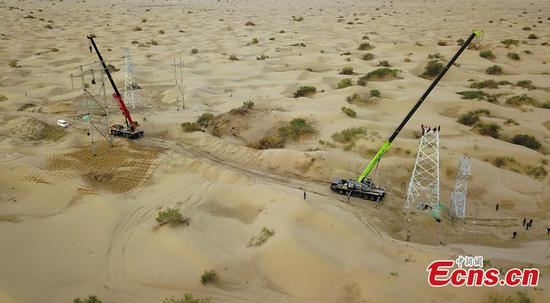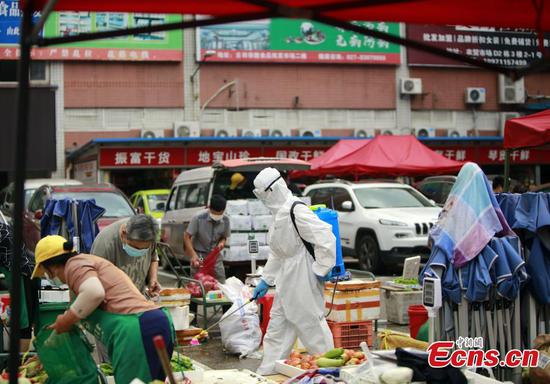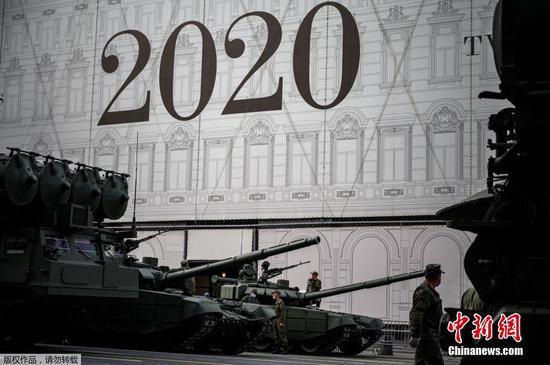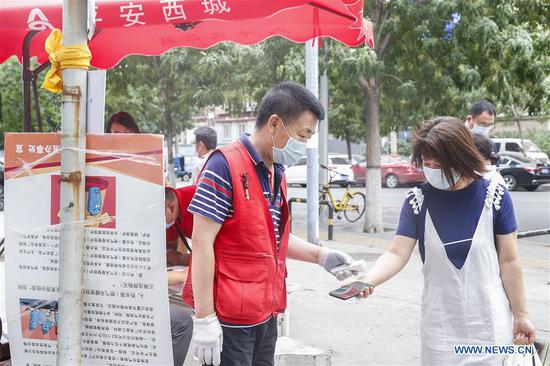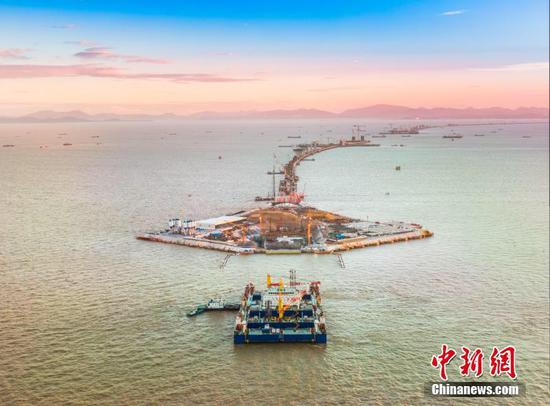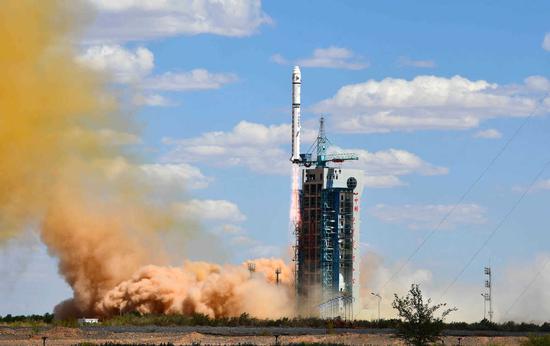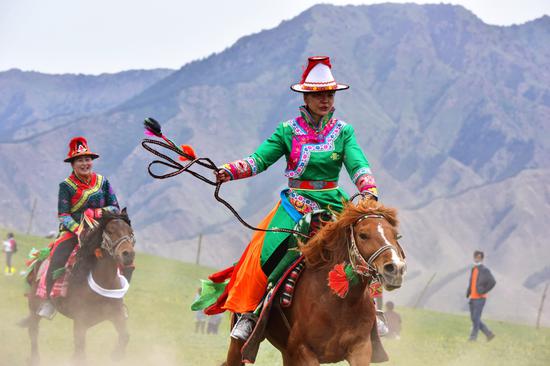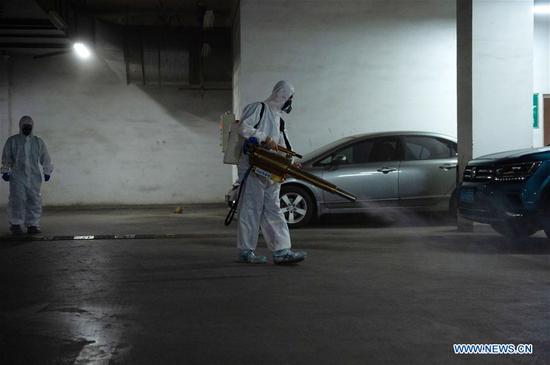Editor's note: CGTN's First Voice provides instant commentary on breaking stories. The daily column clarifies emerging issues and better defines the news agenda, offering a Chinese perspective on the latest global events.
The world is anxiously watching the development of the China-India skirmish in the Galwan Valley, the "deadliest" since 1975. It's not the first time that the largest two Asian countries have been mired in border disputes, with the Doklam standoff in 2017 almost triggering an armed conflict.
"India's border policy is the root reason for repeated clashes," Ye Hailin, director of the Center of South Asia Studies under the Chinese Academy of Social Sciences, told CGTN. It's true no border has officially been negotiated in the Himalayas, but this, as Ye claimed, will not necessarily lead to physical conflict.
In 1962, the two nuclear powers reached consensus on the 2,100-mile-long Line of Actual Control (LAC) after the deadly border war. While China has never crossed the LAC, the Indian side, in spite of the 1962 truce, has been repeatedly nibbling away at China's territory. This eventually led to physical fights, causing casualties on both sides this time, Ye said.
"For decades, India has been unilaterally stirring up troubles on the border issue, hoping to push the current LAC forward," Ye claimed, adding that New Delhi, despite the government reshuffles, has never changed this policy. How New Delhi implements this border policy depends on Beijing's reaction: Beijing's fight back may win Chinese soldiers some quiet days, but restraint would invite more provocative actions from the Indian side, Ye told CGTN.
In this context, the deadly casualties on June 15 are not surprising. No side is happy to see deaths. But tragedies would inevitable if India insists its provocative border policy. New Delhi is fully aware of Beijing's determination to safeguard national sovereignty, but it is still playing fire on the issue.
How the skirmish will impact future China-India relations is hard to say at the current stage. China has exerted restraint on the clash, and is willing to address the issue via diplomatic talks. After all, China and India are both emerging powers in Asia. Cooperation, not confrontation, conforms to the long-term interests of the two neighbors. But in the meantime, China will not give up any inch of territory. This is Beijing's bottom line that New Delhi should have never touched.
"Both parties reached consensus on the principle that China and India should pose no threat to each other. This shows their willingness to solve disputes by peaceful means," Rong Ying, vice president of the China Institute of International Studies, told CGTN. In addition, major powers including the U.S. and Russia are happy to act as a broker to solutions. This, according to Rong, may deescalate tensions.
After the clash, Indian Prime Minister Narendra Modi denied China's intrusion into India. "Nobody has intruded into our border, neither is anybody there now, nor have our posts been captured," Modi reportedly said. Some observers see the rhetoric as an attempt to downplay the clash and avoid an escalation.
But there are still risks in China-India ties. It is worth noting that India made new border rules after the standoff with China. The new "Rules of Engagement" allow commanders "complete freedom of action" along the LAC. New Delhi is also deploying additional troops to the border. These, according to Ye, are worrying signs that cannot be neglected in analyzing future Sino-Indian relations.
Many argue the border clash would accelerate India's strategic tilt toward the United States. But India, as Ye said, is unlikely to shift its border policy with China as a result of Washington's attitude. In the meantime, no matter how New Delhi would interact between Washington and Beijing, the Chinese government will not shift its stance on safeguarding its national interests.
India must maintain cool-headed in handling ties with China. While China is seeing challenges in its exterior environment, this does not mean the country can tolerate India's provocations on the border. The two Asian neighbors share a lot in common, and cooperation is the only way out. Unilateral provocations will lead Sino-Indian relations to disaster.
Scriptwriter: Liu Jianxi











